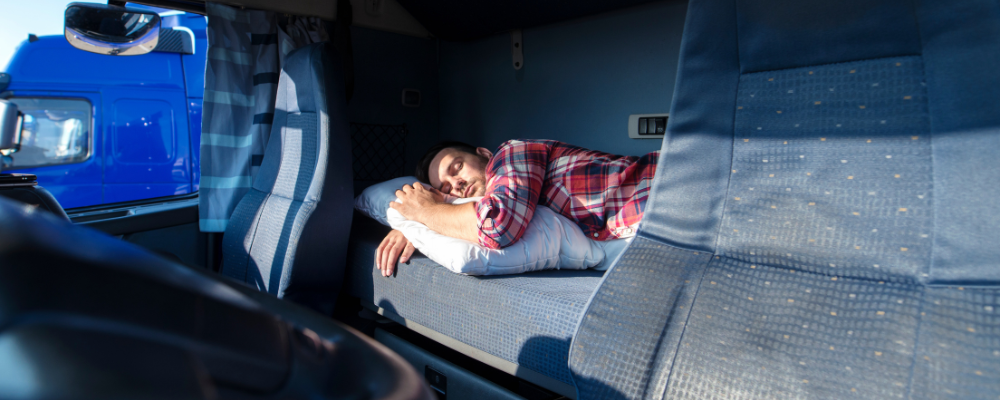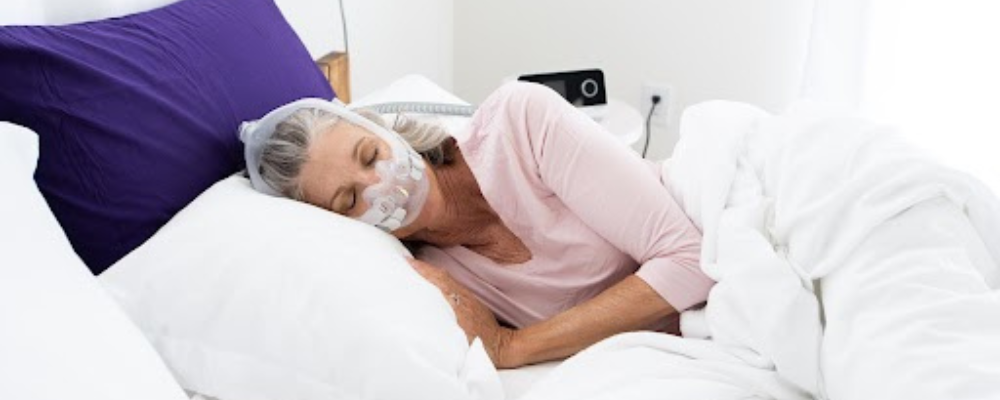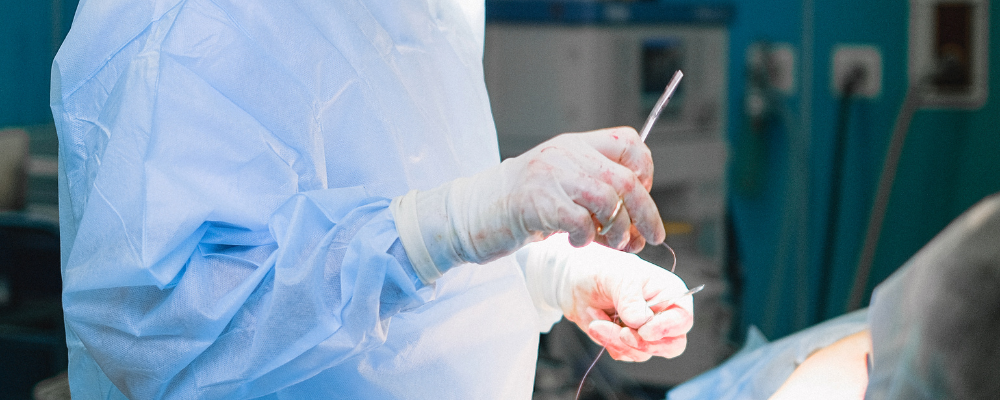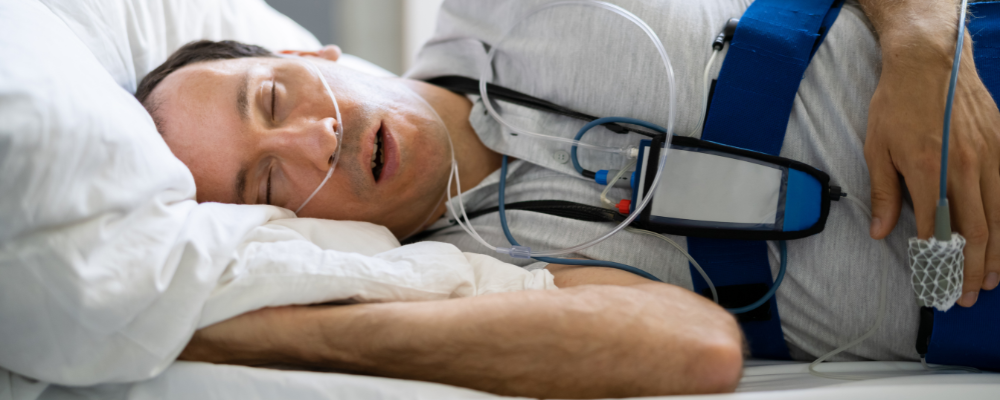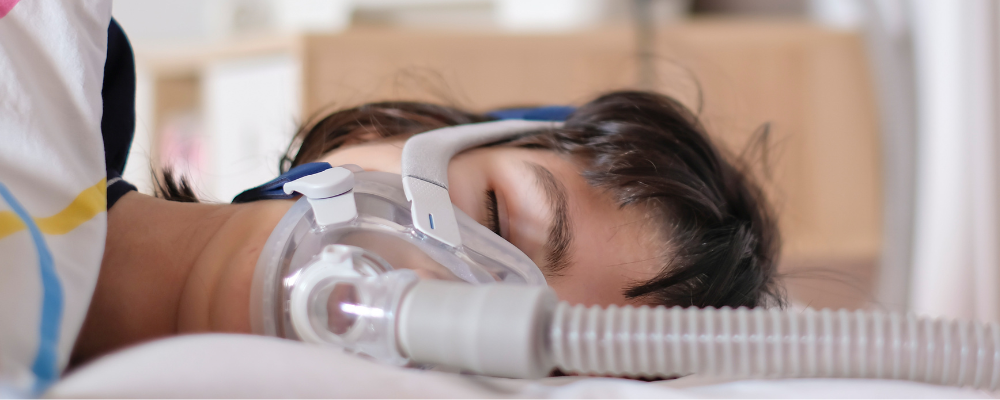If you’ve purchased anything ever, there’s a strong chance that it was once on a truck. We’re not just talking about the impulse buys you find on Amazon. We’re talking about the food that’s in your grocery stores, the clothes in your fast fashion chains, even the construction materials that build your community. All of these things came to you on a truck–a truck that was driven by a commercial truck driver.
In This Article:
What Are Sleep Apnea Treatment Options?
What Are The DOT Requirements For Sleep Apnea?
How The CPAP Machine Shortage Is Affecting Truck Drivers
What Are The Risks Of Untreated Sleep Apnea?
3 Reasons Untreated Sleep Apnea In Truckers Affects You
CPAP SUPPLIES THROUGH INSURANCE:
Aeroflow Sleep is in-network with most primary insurance companies and is accreditted by Medicare and Medicaid. Complete our Qualify Through Insurance Form, and we will automatically check to see if your plan covers CPAP supplies; including a machine, mask, and accessories. ***Must have a sleep study to qualify.***
You will also receive the care and attention every sleep apnea patient deserves; one-on-one clinical support in-home or via telehealth, a dedicated Sleep Specialist you can contact during business hours, and a user-friendly online portal with tailored replacement schedule, important updates and notifications, and educational resources.
Let us take the headache out of healthcare. Join the Aeroflow Sleep family today! It only takes 5-7 minutes to get started.
What is Sleep Apnea?
Let’s start by defining what sleep apnea is. Sleep apnea is when you stop breathing while you sleep. Any small lapse of breathing prevents oxygen from getting to the brain, so your body grows tired as it tries over and over again to compensate. The 3 types of sleep apnea are:
- Obstructive sleep apnea (OSA) is the most common form of sleep apnea, and it occurs when your throat muscles relax and collapse.
- Central sleep apnea (CSA) is a breakdown in neural signals between the brain and breathing muscles.
- Mixed sleep apnea (also known as complex sleep apnea or treatment-emergent central sleep apnea) is a combination of both OSA and CSA. It’s also the most severe sleep apnea.
The symptoms of sleep apnea include:
- Snoring
- Apneic events
- Waking up coughing
- Waking up gasping for air
- Waking up with a dry mouth
- Headaches in the morning
- Difficulty sleeping or insomnia
- Excessive daytime sleepiness
- Forgetfulness or irritability
- Sexual dysfunction
That’s a lot of possible symptoms, but some of the most common causes of sleep apnea are actually other medical conditions; like obesity, high blood pressure or hypertension, type 2 diabetes, and heart or kidney failure. These are all common risk factors of sleep apnea. Doctors look at them when performing a sleep study, which is how sleep apnea is diagnosed. Then, they determine how to treat your particular sleep disorder.
What are Sleep Apnea Treatment Options?
Sleep apnea can be treated several different ways, but using continuous positive airway pressure (CPAP) is considered the gold standard. This treatment method is a form of sleep medicine that delivers a constant, steady stream of air pressure via CPAP supplies.
The CPAP supplies that are covered up to 100% through insurance when you join the Aeroflow Sleep program consist of:
- Machines: CPAP, BiPAP, or APAP
- Masks: full-face, nasal, or nasal pillow
- Tubing (also called a Hose)
These 3 products are the bare necessities, but there are also benefits to purchasing humidifiers, chin straps, and heated specialty items out of pocket. Ask your healthcare provider or dedicated Aeroflow Sleep Specialist if any additional parts are right for you.
What are the DOT Requirements for Sleep Apnea?
Now that you have a basic understanding of what sleep apnea is, it’s bonkers that the Department of Transportation (DOT) does not discriminate between those who have sleep apnea and those who do not, given that a truck driver’s primary job requirement is clocking in at 3 AM for a cross-country road trip in an eighteen-wheeler, right? Well, the prevalence of sleep apnea in truck drivers is so high, it’s considered normal.
The CAO of FreightWaves claims, “Truck drivers are 11x more likely to suffer from sleep apnea than the general population.”
The trucking industry would be greatly impacted if sleep apnea prevented its drivers from obtaining a Commercial Driver’s License (CDL.) Furthermore, there are only a handful of reasons someone would need a sleep study done in order to pass the DOT physical. Foley Services, a DOT compliance partner of commercial motor vehicle companies, says that having a Body Mass Index (BMI) over 40–or a BMI over 33 depending on other factors–and a neck size above 17 inches for males or 15.5 inches for females are the two most common reasons sleep apnea testing is needed by the DOT.
In short, you can drive a truck if you have sleep apnea as long as you pass the DOT physical, which is required for all truck drivers. Does that scare you? It shouldn’t. What should scare you is that there is currently a CPAP machine shortage, and it’s affecting truck drivers.
How the CPAP Machine Shortage is Affecting Truck Drivers
Remember how CPAP is the gold standard for treating sleep apnea? Truck drivers can use CPAP machines every night. In fact, it’s encouraged by trucking companies, especially on an overnight job. Unfortunately, there is currently a CPAP machine shortage. CPAP machines aren’t in stock due to the following obstacles:
- Philips Respironics recalled America’s #1 CPAP machine, the Dreamstation, among others upon discovering that the “sound abatement foam” releases particles into the device’s air pathways. This may carry its own possible health risks.
- Other CPAP manufacturers are having difficulty keeping up with the increased demand now that the recalled CPAP machines are no longer being made.
- There is also a semiconductor chip shortage; components that are being negligently prioritized for cars and electronics.
- The pandemic continues to impact manufacturing as far as labor and retention go.
Although Philips Respironics has begun repairing or replacing affected CPAPs and BiPAPs, the shortage and supply chain is cyclical, because patients who have already been diagnosed with sleep apnea need to replace their machines every 5 years. That means people who never had a recalled machine are also affected, because their ResMed AirSense 10 is now being sought after by patients who previously prefered the Philips Respironics brand. But we digress…
There isn’t a system in place to say that truck drivers need machines more than anyone else, yet if a truck driver has sleep apnea but does not have a CPAP machine, they’re not receiving the best possible treatment for their disease…while literally driving interstate commerce.
What are the Risks of Untreated Sleep Apnea?
Jonathan Jun, M.D., a pulmonary and sleep medicine specialist at the Johns Hopkins Sleep Disorders Center, explains, “Several studies have shown an association between sleep apnea patients and problems like type 2 diabetes, strokes, heart attacks and even a shortened lifespan.”
If your sleep apnea is left untreated, you could suffer severe complications, possibly death. Now, think about what the consequence of untreated sleep apnea in truck drivers is.
The Federal Motor Carrier Safety Administration (FMCSA) sets guidelines for the trucking industry. They call it Rulemaking, and according to Indeed.com, truck drivers can drive 11 hours each day. An 8-hour business day is typical for the general populous, but truck drivers are adding 3 more to theirs. Not to mention, their job is spent behind the wheel, eating fast food, and living out of an inches-long sleeper cab. That kind of stress on a long-haul could easily exacerbate any one of the conditions Dr. Jun mentions.
3 Reasons Untreated Sleep Apnea in Truckers Affects You
If you’re not a truck driver or even a commercial vehicle driver, their untreated sleep apnea still greatly affects you, because “72% of goods in America are shipped by truck, and in most communities, trucks are the only form of delivery.” This shocking statistic comes directly from whitehouse.gov ~5 months ago. What does that mean? Untreated sleep apnea in truckers can…
1. Cause Economic Decline
An increased risk of strokes and heart attack due to untreated sleep apnea means you’re looking at an increased risk of one workforce being hospitalized. Not to mention, it’s the one workforce that supplies our country with a very large majority of its consumables. Fewer truck drivers would instantly cause economic decline.
2. Delay Shipping Times
Fewer truck drivers would increase delayed shipping times too. Yes, even more than they already are. After all, if there aren’t enough truckers to deliver the products we need, then you are going to have to wait longer for the ones we don’t; like that must-have gadget you saw on The View.
3. Make Roads Unsafe
Last but certainly not least, it’s recognized that driving while you’re sleepy is as dangerous as driving while drunk. If truck drivers are burdened with sleep apnea symptoms like excessive daytime fatigue because the CPAP machine shortage has prevented them from treating their sleep apnea, you, them, and everyone else in a motor vehicle around you is unsafe.
What You Can Do to Help
Aeroflow Sleep is continuing to try to leverage various relationships with the FDA, DOT, and more where the shortage of CPAP machines is concerned. We need your help though. You can write to your Congressman, write to a technology CEO, and contact your local media outlet in order to raise awareness and encourage change today. All you need to do is click this link to print pre-written letters that we’ve already created for you!
If you or someone you love is a truck driver in need of CPAP supplies, see if your order can be fulfilled by Aeroflow Sleep today! We work with your insurance provider to get equipment covered up to 100% through insurance. Simply fill out our qualifying form to check your eligibility and become a part of the Aeroflow Sleep program.


